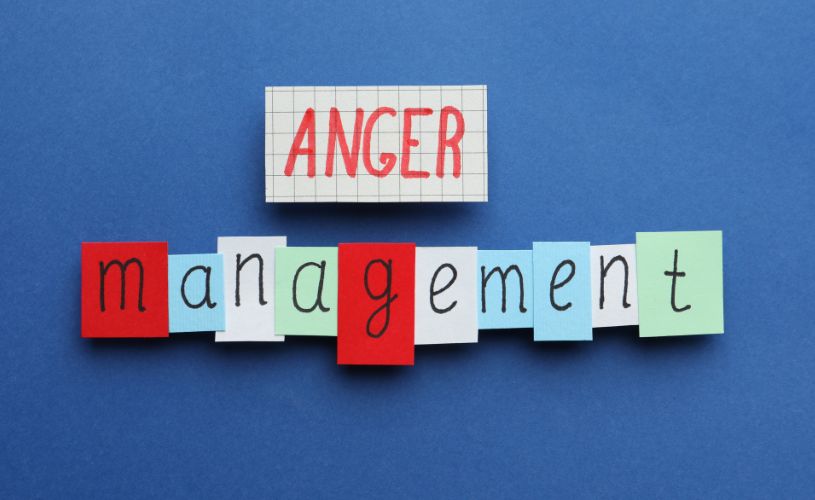Stress is an inevitable part of life, and learning how to manage it effectively is crucial for our mental and physical well-being. Cognitive techniques for stress management focus on changing the way we think and perceive stressful situations, ultimately helping us better cope with them. These techniques can be powerful tools in our stress management toolkit, but not all strategies fall under the cognitive umbrella.
Contents
Cognitive Technique for Stress Management

Understanding Stress and Its Impact
Before we delve into stress management techniques, it’s essential to understand what stress is and how it affects us. Stress is the body’s natural response to a perceived threat or challenge. It triggers the release of stress hormones like cortisol and adrenaline, preparing us to react to the situation – the “fight or flight” response.
While stress can be a motivating force, chronic or excessive stress can have detrimental effects on our physical and mental health. It can lead to issues such as anxiety, depression, high blood pressure, weakened immune function, and more. Therefore, finding effective ways to manage stress is essential for our overall well-being.
Cognitive Techniques for Stress Management
Cognitive techniques for stress management focus on changing our thought patterns, beliefs, and perceptions about stressors. By altering our cognitive responses, we can reduce the negative impact of stress on our mental and physical health. Here are some well-established cognitive techniques for managing stress:

1. Cognitive Restructuring
Cognitive restructuring involves identifying and challenging negative thought patterns and replacing them with more positive and rational ones. This technique helps individuals reframe their perceptions of stressful situations, reducing anxiety and improving coping mechanisms.
2. Mindfulness Meditation
Mindfulness meditation is a practice that encourages individuals to stay present and fully engage with the moment. By focusing on the here and now, individuals can reduce the impact of stressors and improve their emotional regulation.
3. Positive Visualization
Positive visualization involves imagining positive outcomes and situations. This technique can help individuals reduce anxiety by shifting their focus from negative or stressful thoughts to more optimistic and calming mental images.
4. Progressive Muscle Relaxation (PMR)
Progressive Muscle Relaxation is a method that combines deep breathing with the systematic tensing and relaxing of muscle groups. It helps reduce physical tension and anxiety, promoting relaxation and stress relief.
5. Journaling and Self-Reflection
Keeping a journal can be an effective way to manage stress. It allows individuals to express their feelings, identify stressors, and gain insight into their emotional responses. Journaling can also help individuals track patterns and triggers.
6. Coping Statements
Coping statements are positive and affirming phrases individuals can repeat to themselves when faced with stressors. These statements serve to counter negative self-talk and build resilience.
Now, let’s identify which of these techniques does not belong to the cognitive category.
Not a Cognitive Technique: Progressive Muscle Relaxation
Progressive Muscle Relaxation (PMR), while a valuable stress management technique, does not fall under the cognitive category. Instead, it is a physiological technique. PMR involves the physical tensing and relaxing of muscle groups to reduce physical tension and promote relaxation. This technique targets the body’s physiological response to stress, rather than altering thought patterns or cognitive processes.
While PMR may not be a cognitive technique, it is still an essential tool for stress management. By relaxing the body, it can indirectly help reduce cognitive stress responses. When the body is relaxed, the mind often follows suit, leading to a calmer state of being.
Combining Cognitive and Physiological Techniques
Effective stress management often involves a combination of cognitive and physiological techniques. While cognitive techniques address the mental and emotional aspects of stress, physiological techniques like PMR address the physical manifestations of stress, such as muscle tension and elevated heart rate.
The key to successful stress management is finding a personalized approach that works for you. Some individuals may benefit more from cognitive techniques, while others find physiological techniques like PMR to be more effective. Ultimately, the choice depends on individual preferences and the specific nature of the stressors one faces.
Conclusion
In the realm of stress management, cognitive techniques play a vital role in helping individuals reframe their thoughts and perceptions about stressors. While Progressive Muscle Relaxation (PMR) is not a cognitive technique, it is still a valuable tool for reducing the physical tension associated with stress. Effective stress management often involves a combination of cognitive and physiological techniques, allowing individuals to address both the mental and physical aspects of stress. Regardless of the techniques you choose, the goal remains the same: to reduce the negative impact of stress on your overall well-being and lead a healthier, more balanced life.






